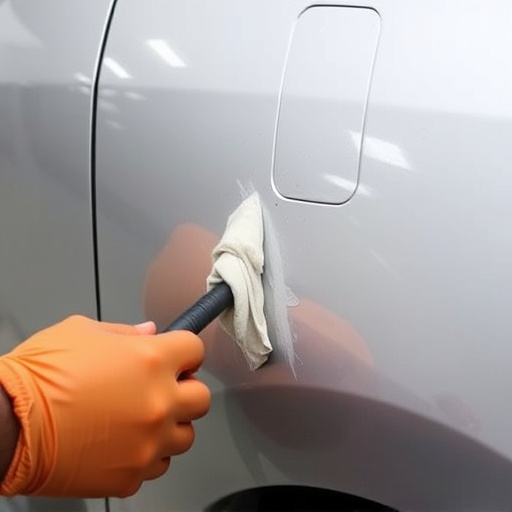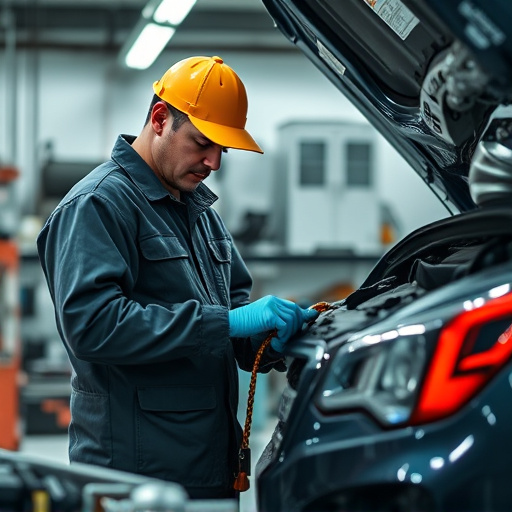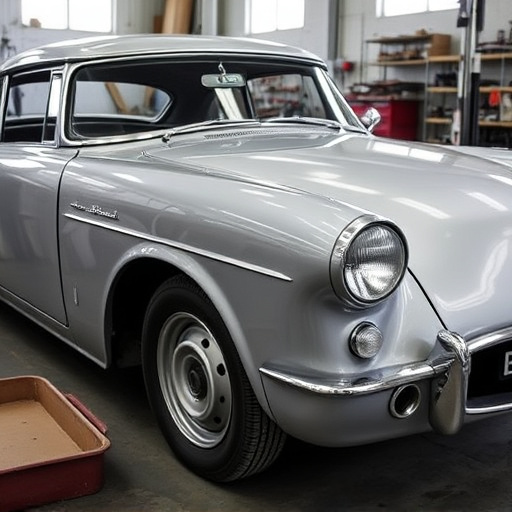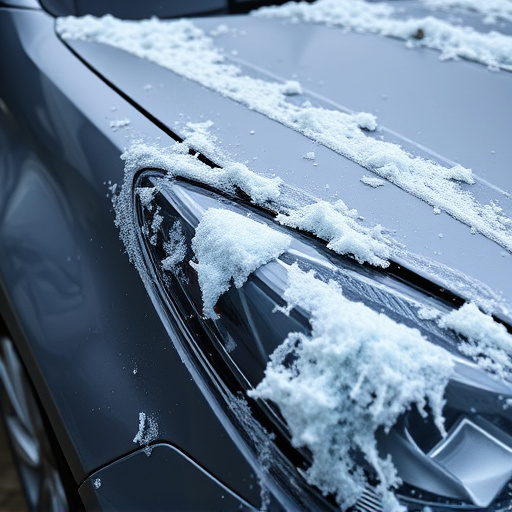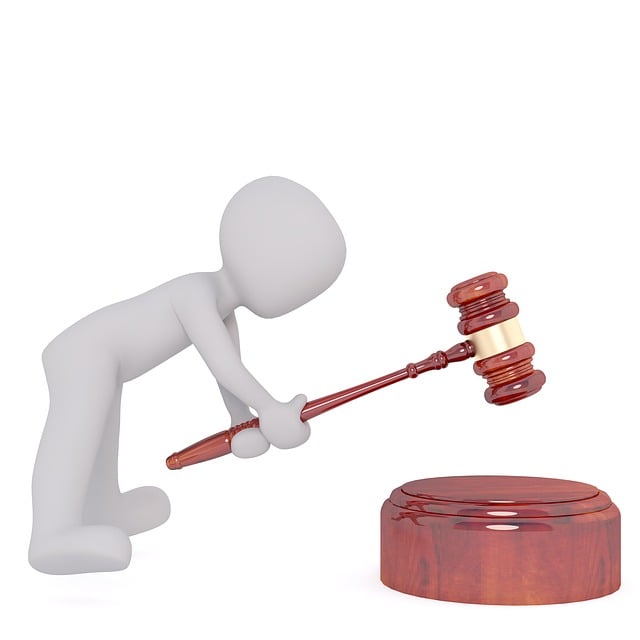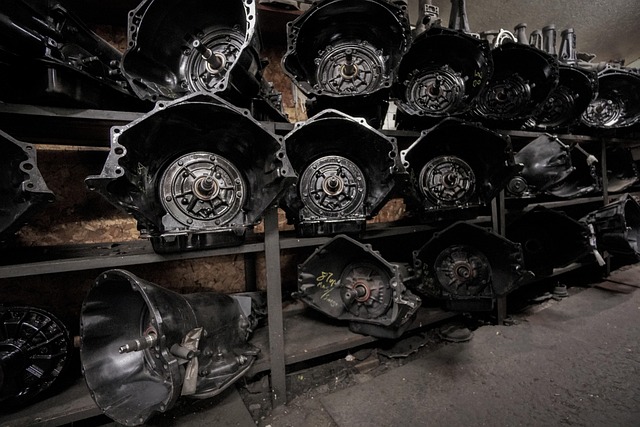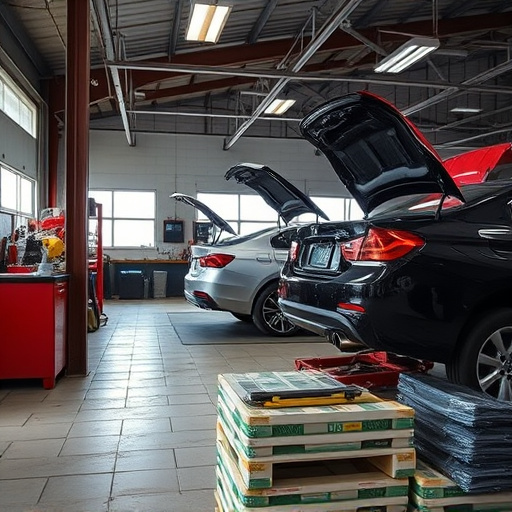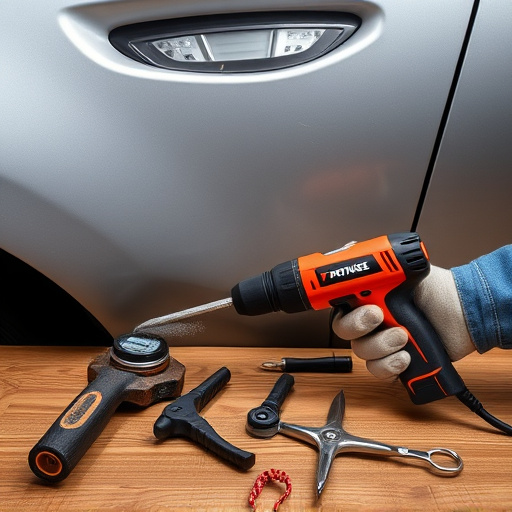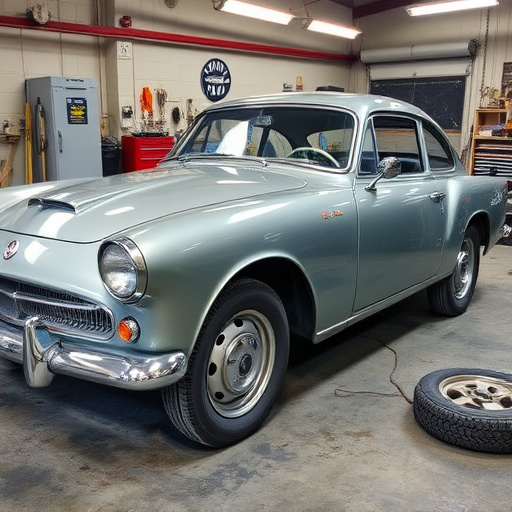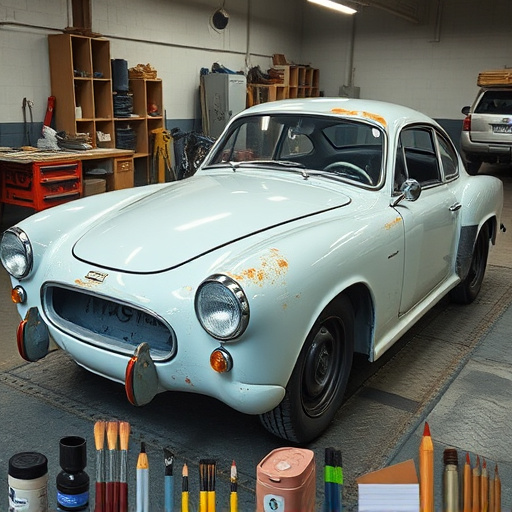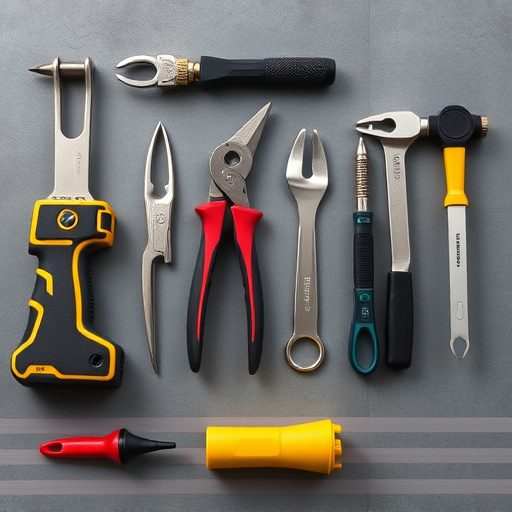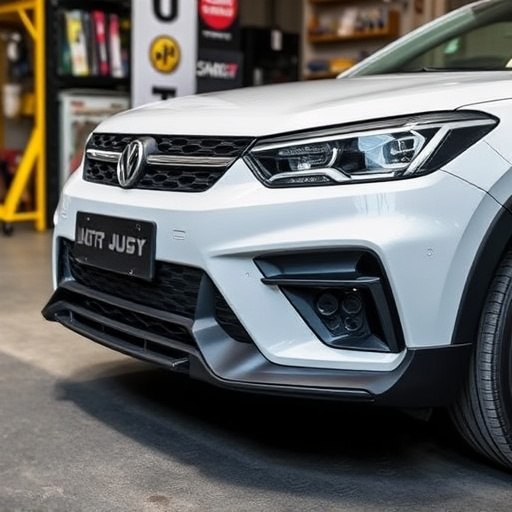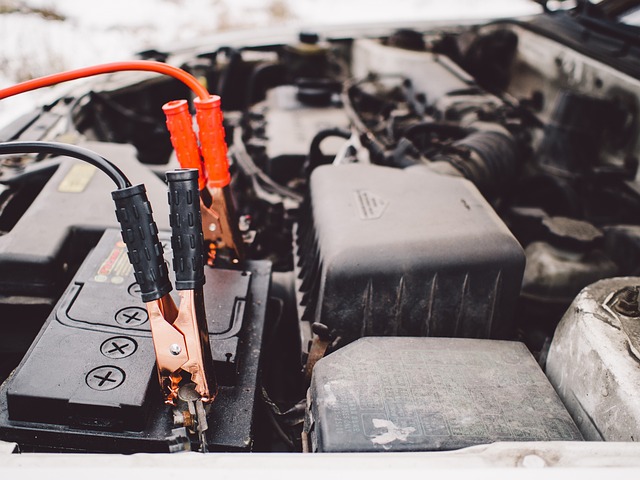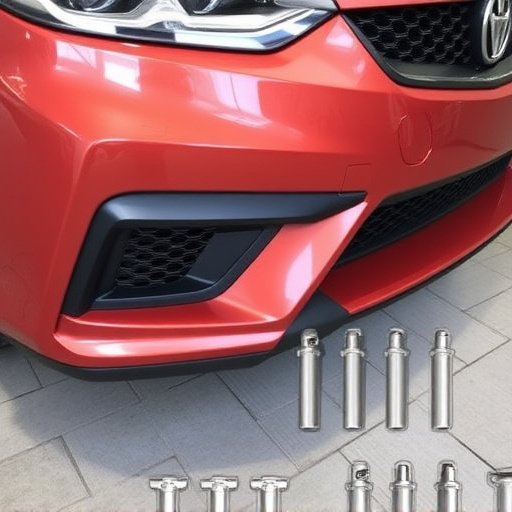Metal fabrication collision repair involves using alloys like steel and aluminum for dent repairs, panel replacements, and frame straightening. Steel's strength and versatility make it ideal for structural work, while aluminum's lightweight properties enhance vehicle performance. Skilled technicians use advanced tools and CAD software to accurately select materials based on vehicle specifics and damage extent, ensuring high-quality outcomes in collision repair.
In the fast-paced world of metal fabrication collision repair, selecting the right materials is crucial for achieving precision and durability. This article delves into the common materials used in these shops, exploring essential elements that underpin successful repairs. From understanding fundamental metal properties to mastering material selection techniques, each step ensures top-quality outcomes. We examine popular metals, their unique characteristics, and optimal applications, providing a comprehensive guide for professionals navigating this dynamic field.
- Understanding Essential Materials in Metal Fabrication
- Common Metals for Collision Repair: Properties and Applications
- Tools and Techniques for Effective Material Selection
Understanding Essential Materials in Metal Fabrication
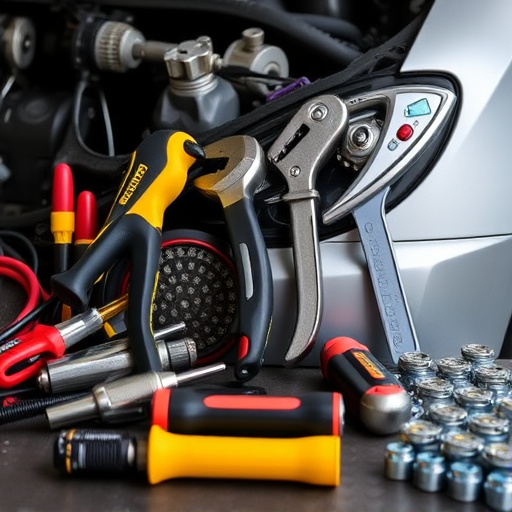
Metal fabrication is a cornerstone process in collision repair shops, enabling them to effectively fix and restore car bodywork after accidents or damage. Understanding essential materials used in this process is crucial for ensuring high-quality vehicle body repair and frame straightening outcomes. Common choices include a variety of alloys like steel, aluminium, and more specialized metals designed for specific applications.
In the realm of metal fabrication collision repair, professionals rely on these materials to create precise replacements for damaged parts. Whether it’s repairing dents, replacing panels, or realigning frames, the choice of material directly impacts the final product’s strength, durability, and even aesthetics. Each material has its own unique properties, making it suitable for different stages of the vehicle body repair process.
Common Metals for Collision Repair: Properties and Applications
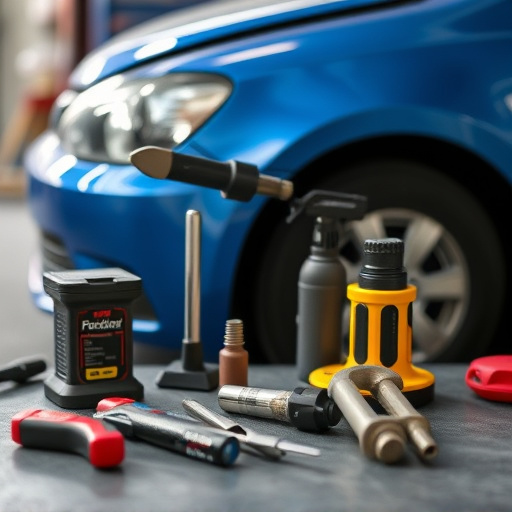
In metal fabrication collision repair shops, several common metals are utilized due to their unique properties and applications. Steel is undoubtedly one of the most prevalent materials, offering exceptional strength and durability, making it ideal for structural repairs and replacements in car bodywork. Its versatility allows for easy shaping, welding, and forming, which is essential during the restoration process.
Aluminum is another popular choice, especially for modern vehicles. This metal is known for its lightweight nature, excellent corrosion resistance, and high thermal conductivity. These properties make aluminum a preferred material for repairing car scratch damage and enhancing overall vehicle performance. Its versatility in casting and machining ensures precise fitting and finishing, contributing to the precision of automotive restoration work.
Tools and Techniques for Effective Material Selection
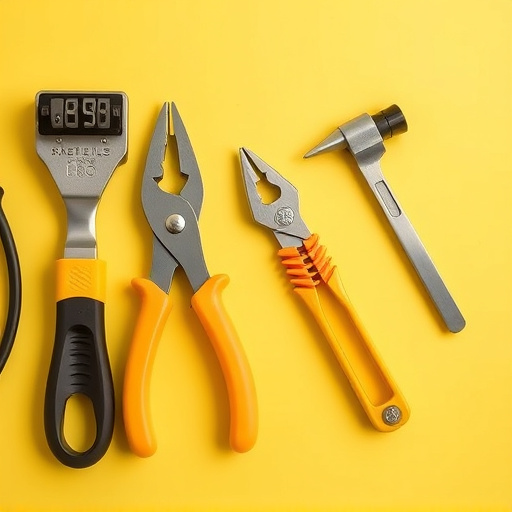
In metal fabrication collision repair shops, efficient material selection is paramount to achieving high-quality outcomes in auto body shop services. Skilled technicians leverage a combination of advanced tools and proven techniques to ensure the right materials are chosen for each unique repair scenario. This involves assessing factors like the original vehicle’s make and model, the extent of damage, and specific design nuances that impact fit and finish.
Specialized equipment, such as digital measurement tools and computer-aided design (CAD) software, plays a crucial role in this process. These tools enable precise identification of damaged areas and accurate determination of replacement parts’ dimensions. For instance, when handling a Mercedes Benz collision repair, technicians might use laser scanners to capture detailed 3D models of the vehicle, facilitating exact material cutting and fitting. Such precision not only ensures structural integrity but also maintains the aesthetic appeal of the body shop services, resulting in superior customer satisfaction.
Metal fabrication is a cornerstone of the collision repair industry, requiring a deep understanding of materials and their applications. From aluminum to steel, each metal offers unique properties tailored to specific repair needs. By leveraging the right tools and techniques for material selection, collision repair shops can ensure robust and lasting repairs, enhancing vehicle safety and customer satisfaction in the process. Embracing these common metals and associated fabrication methods is key to staying competitive in the ever-evolving landscape of metal fabrication collision repair.
